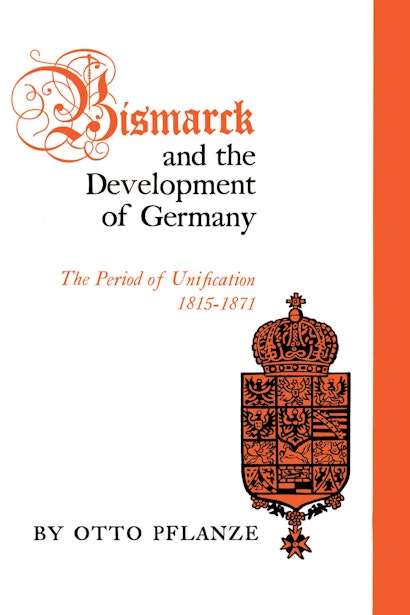This political history of Germany assesses Bismarck’s role in the events which paved the way for the catastrophes of the twentieth century, showing how Bismarck first established the association between German nationalism, Prussian militarism, and Hohenzollern authoritarianism. The author is completing a second volume, “The Period of Consolidation, 1871-1890.” Volume I has been awarded the McKnight Foundation Humanities Award.
"By virtue of his superb mastery of the vast Bismarck literature and by his own sound historical sense, Mr. Pflanze cuts through many of the ideological controversies which have hitherto obscured rather than illuminated Bismarck. Nor is this focus narrowly biographical. Rather he seeks to grasp both the man and the forces with which he had to contend, and the result is a clear view of the interplay of German internal development with Bismarck's diplomacy and wars. . . . Mr. Pflanze's work will long endure as an excellent study of the public career of an extraordinary statesman."—Fritz Stern, New York Times
"Of the scholarly works on German history published in the United States during the decade of the 1960's, none is likely to be more enduring than the first volume of Bismarck and the Development of Germany by Otto Pflanze. . . . This is history conceived on a grand scale and executed with an expert hand."—Allan Mitchell, Central European History
"German émigré training and the critical involvement of the interested outsider have combined to produce some notable achievements in the American scholarship on German history prosecuted since the war, and on the basis of this first volume it can be confidently anticipated that Otto Pflanze's study of Bismarck will rank with the best of them. For here is historical biography in the approved grand manner, the public life of a major figure set solidly in the political relations and movements of the time, recounted with the judiciousness that is a blend of detachment and understanding, and presented with the articulated clarity and the modulations of gravity and whimsicality that are the marks of good writing. . . . It is now the standard authority for Bismarck's early regime."—Leonard Krieger, Political Science Quarterly
"This is an admirable book, a credit to American scholarship, by far the best treatment of Bismarck to appear in English. A product of the most meticulous investigation, it is beautifully researched. More than just another biography of Bismarck, it is also a perceptive history concentrating on the interaction between domestic developments and Bismarck's diplomacy and wars up to 1871."—Louis L. Snyder, Saturday Review

